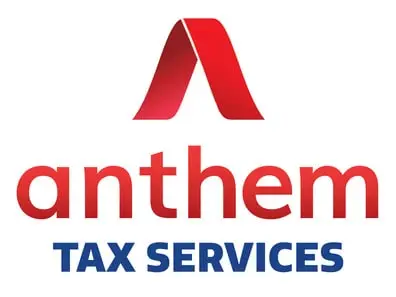
When you file taxes jointly with a partner, it can often be a way of splitting the stress and tedium of compiling a tax return. Some individuals even leave their spouse to do the work of filing, not seeing the document until it is handed to them to sign. However, this may not be the best idea – you can end up running the risk of facing penalties for incorrect or improper filing, and in the first instance, both partners will end up being expected to pay the penalty. If this is a situation in which you have found yourself, then you may well benefit from Innocent Spouse Relief.
What is Innocent Spouse Relief?
Innocent Spouse Relief is an exemption that frees a spouse from paying additional amounts in tax, interest, or penalties arising from their partner declaring their income incorrectly, incompletely, or claimed credits or deductions to which they were not entitled. What this means more briefly is that if you are called upon to pay excess tax as a result of a spouse incorrectly declaring their taxable income, you can be exempted from responsibility.
Am I automatically qualified for Innocent Spouse Relief?
No, and this is important. If you find yourself on the hook for penalties that you should not be paying, then this is not something you can wait for the IRS to sort out. You need to proactively apply for it and provide proof that you are not at fault. The application needs to take place within two years of the original error. Although there will be some exemptions to this limitation, it is not a good idea to assume that the exemptions will be granted, so you should apply for Innocent Spouse Relief immediately if you are called upon to pay more than you should be paying.
There are five specific rules that you must fulfill and prove – if you hope to receive Innocent Spouse Relief. They are as follows:
- You must have filed a joint tax return with your spouse.
- The error has to be directly attributable to your spouse.
- You must be able to prove that you did not play any part in the false declaration.
- The circumstances of the claim must be compelling, as considered by the IRS.
- As previously noted, the claim must take place within two years of the return.
Which circumstances can be considered “compelling”?
Point 4 seems to be open to interpretation, so it is worth looking at the facts that can prove a case is compelling. The IRS looks into the nature of the claim and your personal circumstances. It considers your individual financial situation and educational background, and importantly whether you participated in the activity that created the issue.
In other words, if a tax return under-reports income from a business initiative, the adjudication over Innocent Spouse Relief will look at whether you were a partner in that initiative. It will also look at whether you benefited financially from the error and can also look at whether you are still with the spouse who filed incorrectly.
How do I apply for Innocent Spouse Relief?
The request comes in the shape of a seven-page form, namely Form 8857. You may also file a written, and signed declaration that contains the same information asked for on the form. If the task is too difficult to navigate, the tax professionals at Anthem Tax Service can help. After taking your information into account, the IRS will decide the amount of tax for which you are deemed to be liable.
When deciding on your declaration, keep in mind that the IRS will ask your spouse to provide information relevant to your claim and inform them that you have applied. You need to consider this if you still live with your spouse. If you are concerned that this may place you in a dangerous situation with your spouse, please contact the National Domestic Violence Helpline. If you are accessing the page from a shared computer, it is advised that you clear your browser history; you can find out how to clear single pages by searching for “clear one page from browser history + [the name of the browser you are using].”
The IRS will refund any part of the incorrectly attributed tax that you have paid with your own money, but it will investigate whether you should, in fact, be liable to pay part of the amount, so be aware that it may only partially exonerate you from the claim. Also, be mindful that not all taxes qualify for Innocent Spouse Relief; check with the IRS which ones.
What if I am not eligible for Innocent Spouse Relief?
As we have seen, Innocent Spouse Relief applies in a set, a particular framework, and it is one into which you might not fit. For example, a tax refund that you are due may end up being recouped by the IRS to pay for back taxes or other personal liabilities your spouse has yet to pay. In these cases, you may apply for Injured Spouse Relief; it can take a few months to recoup, but it may allow you to recover a tax refund you should by rights be owed.
If you have filed jointly but later divorced or separated, or you have been widowed since the filing, then you may apply for Separation of Liability Relief. Any separation must be legally recognized, and you must not have lived together in the last 12 months. You may, alternatively, apply for Equitable Relief if you did not file a joint return but live in one of the nine states that are subject to community property laws, where a spouse can be held liable for the tax affairs of their partner regardless of how they have filed.
If you suspect that you may be entitled to Innocent Spouse Relief or seek tax debt relief because of a financial situation with your spouse, contact us immediately by phone or email, we can guide you through the entire process.
When you file taxes jointly with a partner, it can often be a way of splitting the stress and tedium of compiling a tax return. Some individuals even leave their spouse to do the work of filing, not seeing the document until it is handed to them to sign. However, this may not be the best idea – you can end up running the risk of facing penalties for incorrect or improper filing, and in the first instance, both partners will end up being expected to pay the penalty. If this is a situation in which you have found yourself, then you may well benefit from Innocent Spouse Relief.
What is Innocent Spouse Relief?
Innocent Spouse Relief is an exemption that frees a spouse from paying additional amounts in tax, interest, or penalties arising from their partner declaring their income incorrectly, incompletely, or claimed credits or deductions to which they were not entitled. What this means more briefly is that if you are called upon to pay excess tax as a result of a spouse incorrectly declaring their taxable income, you can be exempted from responsibility.
Am I automatically qualified for Innocent Spouse Relief?
No, and this is important. If you find yourself on the hook for penalties that you should not be paying, then this is not something you can wait for the IRS to sort out. You need to proactively apply for it and provide proof that you are not at fault. The application needs to take place within two years of the original error. Although there will be some exemptions to this limitation, it is not a good idea to assume that the exemptions will be granted, so you should apply for Innocent Spouse Relief immediately if you are called upon to pay more than you should be paying.
There are five specific rules that you must fulfill and prove – if you hope to receive Innocent Spouse Relief. They are as follows:
- You must have filed a joint tax return with your spouse.
- The error has to be directly attributable to your spouse.
- You must be able to prove that you did not play any part in the false declaration.
- The circumstances of the claim must be compelling, as considered by the IRS.
- As previously noted, the claim must take place within two years of the return.
Which circumstances can be considered “compelling”?
Point 4 seems to be open to interpretation, so it is worth looking at the facts that can prove a case is compelling. The IRS looks into the nature of the claim and your personal circumstances. It considers your individual financial situation and educational background, and importantly whether you participated in the activity that created the issue.
In other words, if a tax return under-reports income from a business initiative, the adjudication over Innocent Spouse Relief will look at whether you were a partner in that initiative. It will also look at whether you benefited financially from the error and can also look at whether you are still with the spouse who filed incorrectly.
How do I apply for Innocent Spouse Relief?
The request comes in the shape of a seven-page form, namely Form 8857. You may also file a written, and signed declaration that contains the same information asked for on the form. If the task is too difficult to navigate, the tax professionals at Anthem Tax Service can help. After taking your information into account, the IRS will decide the amount of tax for which you are deemed to be liable.
When deciding on your declaration, keep in mind that the IRS will ask your spouse to provide information relevant to your claim and inform them that you have applied. You need to consider this if you still live with your spouse. If you are concerned that this may place you in a dangerous situation with your spouse, please contact the National Domestic Violence Helpline. If you are accessing the page from a shared computer, it is advised that you clear your browser history; you can find out how to clear single pages by searching for “clear one page from browser history + [the name of the browser you are using].”
The IRS will refund any part of the incorrectly attributed tax that you have paid with your own money, but it will investigate whether you should, in fact, be liable to pay part of the amount, so be aware that it may only partially exonerate you from the claim. Also, be mindful that not all taxes qualify for Innocent Spouse Relief; check with the IRS which ones.
What if I am not eligible for Innocent Spouse Relief?
As we have seen, Innocent Spouse Relief applies in a set, a particular framework, and it is one into which you might not fit. For example, a tax refund that you are due may end up being recouped by the IRS to pay for back taxes or other personal liabilities your spouse has yet to pay. In these cases, you may apply for Injured Spouse Relief; it can take a few months to recoup, but it may allow you to recover a tax refund you should by rights be owed.
If you have filed jointly but later divorced or separated, or you have been widowed since the filing, then you may apply for Separation of Liability Relief. Any separation must be legally recognized, and you must not have lived together in the last 12 months. You may, alternatively, apply for Equitable Relief if you did not file a joint return but live in one of the nine states that are subject to community property laws, where a spouse can be held liable for the tax affairs of their partner regardless of how they have filed.
If you suspect that you may be entitled to Innocent Spouse Relief or seek tax debt relief because of a financial situation with your spouse, contact us immediately by phone or email, we can guide you through the entire process.


